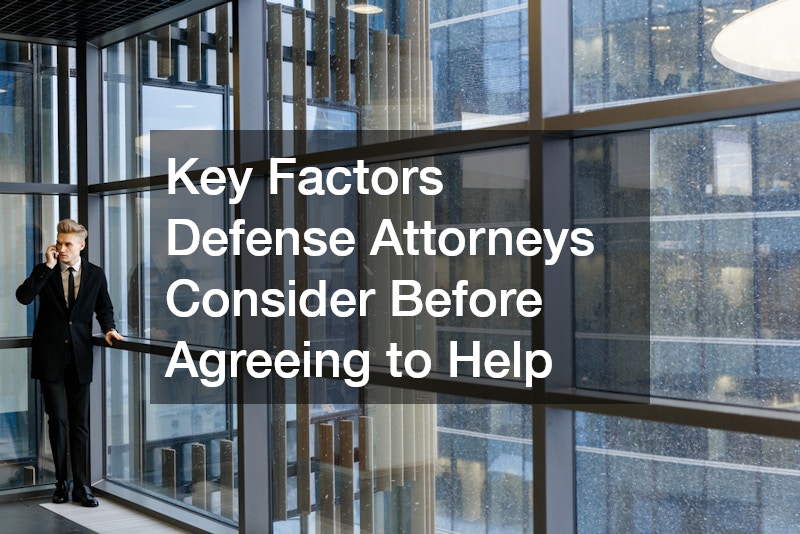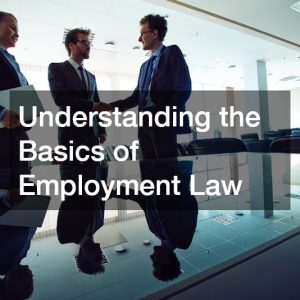
Introduction
Finding the right legal representation can feel really overwhelming, especially if you’re unsure whether an attorney will take your case or even return your call. Legal issues can arise suddenly and touch nearly every part of life—financial struggles that lead you to a bankruptcy lawyer, family conflicts that require divorce attorneys, criminal charges needing an experienced criminal attorney, or serious injuries that send you looking for accident attorneys. The stakes are high, and the last thing you want is to waste time approaching lawyers who are unlikely to help.
Attorneys evaluate potential cases with precision. They weigh the strength of the facts, the evidence available, and whether the matter aligns with their expertise. They also consider practical factors such as the cost of litigation, their current workload, and whether a client is cooperative and realistic about possible outcomes. A lawyer’s decision isn’t just about whether a case can be won—it’s about whether the client-lawyer relationship is likely to be productive, ethical, and mutually beneficial.
This guide explores how different types of lawyers—from a criminal attorney determining viable defenses to the best divorce law firms assessing complex family disputes—decide whether to take a case. You’ll learn why attorneys accept or decline clients, what they look for in your documents and demeanor, and how you can present your situation in a way that makes legal professionals want to represent you. With this knowledge, you can approach the right lawyer, make a strong impression, and secure the help you need when it matters most.

Understanding How Lawyers Decide Which Cases to Accept
Before hiring any legal professional, it helps to understand how attorneys decide whether to take on a client. Lawyers evaluate cases based on merit, evidence, available resources, and alignment with their practice areas. A criminal attorney may focus on legal defenses, while accident attorneys will weigh evidence of negligence. Lawyers also consider whether the client is realistic, cooperative, and financially prepared for the costs of litigation or negotiation. They want to ensure the case is winnable or at least defensible, and that the client relationship will be professional and sustainable over time.
Attorneys also analyze whether a case fits into their strategic goals. A defense attorney might decline a case if it involves a type of charge outside their specialty, while an estate lawyer may prefer drafting complex trusts over handling contentious probate disputes. The decision often combines legal, financial, and personal factors.
When a Bankruptcy Lawyer Is Likely to Take Your Case
A bankruptcy lawyer usually examines your financial records, including income, debts, and assets, to determine if bankruptcy is an appropriate solution. If your case is clear-cut and meets the legal requirements for Chapter 7 or Chapter 13 filings, the attorney is more likely to take it. They may also look at your long-term financial goals, such as whether you’re trying to save a home from foreclosure or protect a business from creditors.
However, if your debts are not dischargeable—such as certain taxes or student loans—or your assets are difficult to protect under exemptions, a lawyer may advise against filing rather than risk a failed outcome. In such cases, they may recommend alternatives like debt restructuring or negotiation. Good lawyers also evaluate whether you have been fully transparent with your financial disclosures; hiding assets or misrepresenting debts is a fast way to lose legal support.
Signs That a Car Accident Lawyer Will Represent You
When approaching a car accident lawyer, you can expect them to review accident reports, medical records, and any available photos or witness statements. They typically accept cases with clear liability and measurable damages, such as medical bills, lost wages, or pain and suffering. If insurance coverage exists and fault is well-documented, a lawyer is more inclined to provide representation.
A car accident lawyer may also consider whether your injuries are significant enough to warrant legal action. Minor fender benders with no medical treatment may not be worth pursuing, but cases involving long-term disability or major expenses are more attractive. They also evaluate whether the at-fault party has adequate insurance or assets to pay a settlement or judgment.
What Divorce Attorneys Look For in Potential Clients
Divorce attorneys seek clients who are honest about finances, family circumstances, and desired outcomes. If you have accurate records of assets, debts, and income, and your goals are realistic, lawyers are more likely to move forward. They may also look for cases that match their style: some lawyers specialize in amicable, negotiated divorces, while others focus on high-conflict litigation.
Complicated divorces with high conflict or hidden property may require the best divorce law firms with additional resources, but even then, they evaluate whether your expectations align with legal realities. If you demand outcomes the law cannot provide, such as denying your spouse any visitation without cause, a lawyer may decline to represent you.
How Criminal Attorneys Evaluate Whether to Defend You
Criminal attorneys assess the severity of charges, available evidence, and potential defenses. They also look at whether the accused is willing to cooperate, follow legal advice, and provide accurate information. If the case involves significant constitutional issues, weak prosecution evidence, or an opportunity to negotiate favorable terms, a lawyer is more likely to agree to defend you.
They also evaluate personal factors: Do you have a criminal history? Are you likely to appear for court dates? Can you cover the legal fees or comply with a payment plan? Even if you are unable to pay, some criminal attorneys may take cases if they believe the case has high-profile potential or involves an important principle of justice.

Questions the Best Divorce Law Firms Ask Before Taking a Case
Large firms with deep resources often handle high-value or complex divorce matters. They will ask about the size of the marital estate, child custody issues, and whether there is any history of domestic disputes. These firms seek cases that match their experience level, ensuring they can deliver strong representation and meet your goals.
They may also inquire about your willingness to engage in mediation, whether there are business interests to divide, and whether hidden offshore assets might require investigation. High-end divorce law practices prefer cases that justify their fees and leverage their advanced investigative tools.
Why a Drug Lawyer Might Decline Representation
A drug lawyer may turn down a case if evidence is overwhelming and there is no viable defense, or if the client cannot pay the required legal fees. They may also avoid cases where the client is unwilling to cooperate, hides key facts, or expects unrealistic outcomes. Attorneys prefer cases where they can meaningfully advocate for reduced penalties, dismissal, or alternative sentencing.
If the case involves mandatory minimum sentences or prior convictions that make the outcome predictable, some lawyers may recommend public defenders rather than charging you for representation they cannot improve upon. They also evaluate whether you are prepared to follow through on rehabilitation programs or other conditions that may improve your legal standing.

Key Factors Defense Attorneys Consider Before Agreeing to Help
A defense attorney reviews both the legal and personal aspects of a case. They want to know whether evidence is admissible, whether there are witnesses to support your version of events, and whether you are prepared to follow through with legal strategy. The attorney’s own workload, reputation considerations, and ethical obligations also affect their decision.
In some cases, defense lawyers weigh whether the case will enhance their professional reputation or set useful legal precedent. They avoid clients who ignore advice, manipulate facts, or insist on illegal strategies. Cooperation, honesty, and a willingness to help gather evidence are key to being accepted as a client.
How Estate Lawyers Decide If Your Matter Fits Their Practice
An estate lawyer generally looks at whether your needs involve wills, trusts, probate, or asset protection. They evaluate the complexity of your estate, the potential for disputes among heirs, and whether their expertise matches the issues at hand. Straightforward estate planning matters are often accepted quickly, while contentious probate cases may require more selective evaluation.
They also consider whether you have documentation organized—such as property deeds, bank statements, and insurance policies. If disputes over inheritances are likely, lawyers may also evaluate whether your case justifies litigation costs or whether mediation is a better solution.
What Accident Attorneys Want to See Before Moving Forward
Accident attorneys typically require solid evidence of injury, fault, and financial loss. They look for clear documentation—such as medical records, police reports, and insurance details—that supports your claim. If your injuries are minor, or if liability is uncertain, a lawyer may hesitate to take the case on a contingency basis.
They also examine whether the case can be resolved efficiently. If litigation costs are higher than the expected settlement, the case may not be worth pursuing. However, if you demonstrate that you’ve followed medical advice and documented your damages, lawyers are far more likely to accept your claim.
The Role of Evidence in Convincing a Criminal Attorney to Take Your Case
Strong evidence in your favor—such as surveillance footage, credible witnesses, or procedural errors in the investigation—can make your case more appealing to a criminal attorney. Evidence that undermines the prosecution’s claims can give lawyers confidence that they can negotiate favorable terms or secure a dismissal.
Attorneys often look for any sign that police mishandled evidence, violated constitutional rights, or failed to follow proper procedures. Demonstrating that you already have helpful evidence collected can save the lawyer time and effort, increasing your chances of being accepted as a client.
Common Reasons Lawyers Turn Down Cases
Lawyers may decline cases due to conflicts of interest, insufficient evidence, inability to pay fees, unrealistic expectations, or lack of expertise in the legal issue at hand. High caseloads or personal resource limitations can also lead attorneys to refer clients elsewhere. Sometimes a case simply doesn’t fit their business model or geographic practice area.
They also avoid cases where clients are unwilling to compromise or demand impossible outcomes. If a client insists on taking an unreasonable stance—like refusing to negotiate even when it’s the best option—lawyers may prefer to avoid the frustration.

Preparing Your Case So an Attorney Is More Likely to Accept It
To increase the chances of securing representation, gather relevant documents, stay organized, and be truthful about your situation. Whether seeking help from divorce attorneys, accident attorneys, criminal attorneys, or an estate lawyer, demonstrating cooperation and realistic goals makes you a more appealing client. Presenting clear facts, potential witnesses, and supportive evidence helps any lawyer evaluate your case quickly and positively.
Additionally, understanding your own case before approaching a lawyer shows that you’re serious. Prepare timelines, gather financial statements, organize correspondence, and summarize key facts. Clients who walk in with a clear, concise overview are far more likely to be accepted by top attorneys who value efficiency and credibility.
Conclusion
No matter your legal issue—whether it involves financial struggles, criminal charges, family disputes, or personal injury claims—attorneys select cases using a careful blend of legal analysis, practical considerations, and client readiness. They evaluate not just the facts, but also the likelihood of success, potential defenses, and whether the client relationship will be professional and productive. A drug lawyer may focus on opportunities to challenge evidence or negotiate alternative sentencing. A bankruptcy lawyer will determine whether you qualify for Chapter 7 or Chapter 13 protection, assessing the strength of your financial records. Divorce attorneys analyze whether your goals align with realistic outcomes and whether you have been transparent about assets and family circumstances.
Being organized, prepared, and honest significantly improves your odds of representation. Lawyers are far more willing to invest their time when clients provide clear documentation, understand potential challenges, and demonstrate a willingness to collaborate. This not only helps you secure skilled representation but also allows your attorney to build the strongest possible strategy from day one. Understanding what different lawyers prioritize enables you to target the right professionals, streamline the consultation process, and move forward with confidence knowing you have chosen a legal partner who believes in your case.




